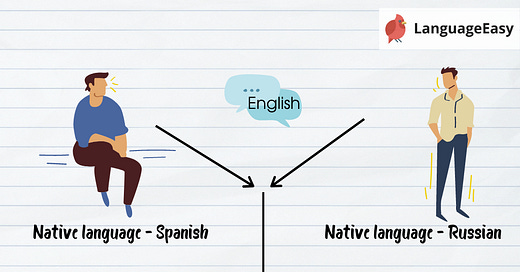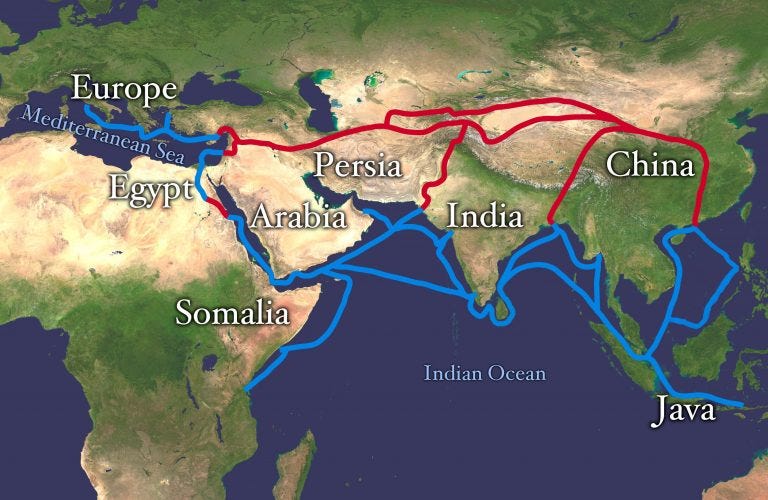A lingua franca is a language that facilitates communication between individuals who do not share a native language or dialect. This can occur in trade, diplomacy, or any multicultural exchange, providing a bridge for interaction across linguistic divides.
In today’s world, English is the lingua franca for most political and economic discussions between countries. This has been reinforced by the United States’ involvement in establishing international organizations like the UN, the World Bank, the International Monetary Fund, and many others. Once a language is used sufficiently to become a lingua franca, displacing it becomes difficult. Even in conversations between non-English-speaking countries, such as Mexico and Russia, most discussions can be conducted in English, which both diplomats speak.
Definition and Historical Context
The term "lingua franca" originates from the Mediterranean region during the Middle Ages. It referred to a mixed language known as Sabir, which was used primarily for trade among various peoples, including Arabs, Greeks, French, Italians, and Spaniards. Sabir was a blend of elements from Romance languages and Arabic, serving as a practical tool for merchants and sailors.
Classical Lingua Francas
As civilizations expanded and connected, several prominent lingua francas emerged:
Latin
In the Roman Empire, Latin was the dominant language used across Europe and parts of Africa and Asia. Despite the empire's eventual fall, Latin continued to influence scholarly, legal, and ecclesiastical matters throughout the Middle Ages, morphing into the Romance languages we recognize today.
One of the offspring languages from Latin is French, which we will highlight later.
Greek
Greek served as a lingua franca in the eastern Mediterranean and the Middle East following Alexander the Great's conquests. It facilitated cultural and intellectual exchanges during the pre-Roman period. The Roman Empire spoke Greek in the Eastern Empire, and it was notably used in the Byzantine Empire and Orthodox Christian regions until at least the 1400s.
Arabic
With the rise of Islam in the 7th century, Arabic became a lingua franca extending across the Middle East, North Africa, and parts of Asia and Europe. It played a crucial role in trade, science, and literature, fostering rich cultural and intellectual developments. From the 8th to the 14th century, Islamic science, mathematics, and the arts advanced ahead of other regions. Knowledge of Arabic was crucial for understanding and implementing these new discoveries.
Chinese
In Asia, Mandarin Chinese served as the lingua franca of the Chinese Empire and its vassal states. The Chinese Empire acted as the political and military hegemon of the region, and Mandarin remains widely used in various parts of Asia.
Lingua Francas of the Modern Era
The advent of global exploration, colonization, and technological advancements brought new lingua francas to prominence:
French
From the 17th to the early 20th century, French was the dominant language of diplomacy, culture, and international relations, particularly in Europe. Its widespread use was reinforced by the influence of French colonies and the prestige of French art, literature, and philosophy. The significance of French in diplomatic relations is highlighted by the fact that England used French in the 1500s. It has remained one of the official languages of many international organizations, including the UN.
English
Today, English is arguably the most influential lingua franca, shaping global communication in business, science, technology, aviation, and popular culture. Its dominance arises from the British Empire's historical reach and the contemporary cultural and economic power of the United States. English's proliferation is further bolstered by its presence on the internet, in films, and in international organizations.

Moreover, English is the most widely studied language outside of a resident’s native language. Even in Eastern Europe, English has supplanted Russian and German as the dominant second language.
English Required
There are a few areas in which English is so dominant that the new users must learn or speak English in some form. These include:
International Air Traffic Controllers
Software Coding. English is the basis of most computer languages.
Regional Lingua Francas
Chinese
As noted above, Chinese remains the lingua franca of much of Asia. This is often due to Chinese heritage populations, particularly in the governing and economic sectors. Chinese could be more widespread; however, it is difficult to learn and has a writing system that is very different from most of the world.
Spanish
Spanish is a significant lingua franca in the Americas, especially in Latin America and the United States. Its spread is attributed to Spanish colonial history and its influence in trade, politics, and cultural exchanges across the region.
Regional
Aside from these global examples, various regional lingua francas have played essential roles in fostering communication:
Swahili
In East Africa, Swahili serves as a bridge language among diverse ethnic groups. It emerged from interactions between Bantu-speaking populations and Arab traders and is widely used in Kenya, Tanzania, Uganda, and neighboring countries.
Hindi
In India, Hindi functions as a lingua franca, alongside English, aiding in communication across the nation's numerous linguistic communities. It is one of India's official languages and is commonly used in government, media, and education. India is one of the few countries with so many different languages that it needs a common language to communicate.
The Story of Esperanto
In 1887, a Pole named Leyzer Zamengov created the “international language” of Esperanto. His idea was that it was a language completely based on other languages. It could be shared and learned worldwide. In a letter to a colleague, he explained that he grew up in a town where the populations were almost equally split between Russians, Poles, Jews, and Germans. Each of these groups had its own language, which caused a lot of misunderstanding.
Esperanto has had periods where its use was promoted, but it has now fallen to the point where more people speak Klingon than Esperanto.[1]
Conclusion
The concept of a lingua franca illustrates our persistent need to communicate across cultural and linguistic boundaries. From ancient trade routes to the digital age, these intermediary languages have evolved, reflecting shifts in power, commerce, and technology. As the world continues to globalize, the role of a lingua franca remains vital, ensuring mutual understanding.
Will English continue as the world’s lingua franca? In the foreseeable future, it will. There is a massive current base of speakers, which means changing the lingua franca would have to overcome international inertia. In addition, the different writing systems of possible replacements, Chinese and Arabic in particular, are not widespread.
[1] I don’t know if that fact, i.e. Klingon vs Esperanto, is true. But it feels true and since good-feeling lies are all the rage, I am going with it.








